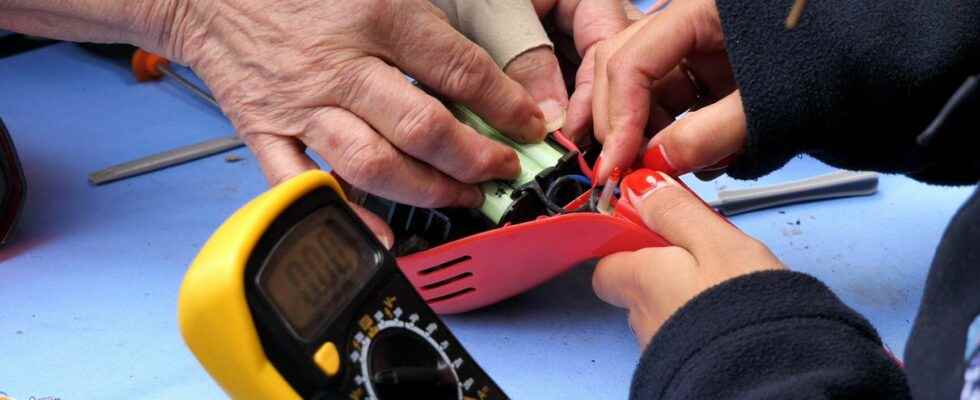You will also be interested
[EN VIDÉO] Interview 1/5: thinking long term with sustainable development? What is sustainable development and is this concept applicable? François Moisan, executive director of strategy and research at Ademe (Agency for the environment and energy management), knows these questions well and answers the microphone of Futura-Sciences.
Geoffroy Malaterre, CEO of Spareka, explains the vision of his start-up and how it helps prolong the duration life of our electronic devices.
Futura: Can you explain your concept to my grandmother?
Geoffroy Malaterre: Spareka accompanies all people who have understood that repairing a defective device is more advantageous for the wallet and the planet. First, it goes through a diagnostic online to identify the cause of the failure via a chatbot free or in video with a technician. In 65% of cases, there is no need to change parts, but if necessary we offer the sale of the appropriate part and tutorials to change it.
Futura: What is your solution?
Geoffroy Malaterre: Each month, Spareka supports nearly two million people in the repair and maintenance of their devices thanks to our advice and a catalog of more than one million spare parts in more than 46 product categories. In all, more than 900,000 devices have been repaired in this way, which corresponds to savings of 420 million euros and 31,700 tonnes of CO2 avoided. Not to mention the increase in skills of all the people who start and the pride they develop by being more autonomous and by participating in the sustainable development. It’s starting to become more commonplace and even more so since the health crisisAnd that’s good !
Futura: Why is your start-up going to change the world?
Geoffroy Malaterre: Since 2012, Spareka has become a central player in thecircular economy in France. In particular, we were consulted for the design of the repairability index which was introduced on 1er January 2021 within the framework of the Agec law (anti-waste and circular economy). We are working with eco-organizations so that the repair fund, created within the same framework to finance the cost of repairing certain products, also takes into account remote repairs in videoconference. With l’Ademewe worked on their site “ Long life to objects » and the implementation of the project « Repair Generation which aims to raise awareness and initiate middle school and high school students in the repair of everyday devices.
Futura: How was the project born and what are the next steps?
Geoffroy Malaterre: In 2012, when theplanned obsolescence was beginning to be denounced, but that the notion of circular economy did not yet exist, I realized all the potential represented by the possibility of allowing everyone to repair their device. Especially since according to Ademe, if the repair costs more than 30% of the price of the device, it is not repaired but thrown away and replaced. Today, 40% of large household appliances in recycling centers can therefore be repaired and reused. I set up the project with a first fundraiser, then a new one currently to develop the platform into a market place model accessible in France and internationally to identify up to 40 million parts.
Futura: If you were Prime Minister, what key measure would you put in place?
Geoffroy Malaterre: As Prime Minister, I would position myself in favor of a reduction in VAT on the repair and refurbished products, as this would be a strong signal for the entire population to take an interest in the issue and in this essential sector in the future. I would also make it compulsory to repair all appliances in the public sector.
Futura: What will the world look like in 2050?
Geoffroy Malaterre: We are going a long way. For a long time we lived in a market context where manufacturers encouraged not to repair or in any case did their best to prevent this from happening and where distributors made their margin on warranties and their extensions. Fortunately things are changing and more and more players in the sector are becoming aware of the importance of the issue for the planet but also economically because the breakdown represents a crucial moment for brand loyalty. Same Apple backtracked from the movement Right to repair. While their computers Where iPhone were almost impossible to repair alone, the apple brand finally launched its Self Service Repairso that everyone can repair with access to genuine Apple tools and spare parts.
Futura: What Futura hot topic excites you?
Geoffroy Malaterre: I loved the article on the history of light bulbs. You know the story of the fire station light bulb in the United States that was put down in the early 20th century?e century and still works? This is great proof of our ability to build durable products.
Interested in what you just read?
